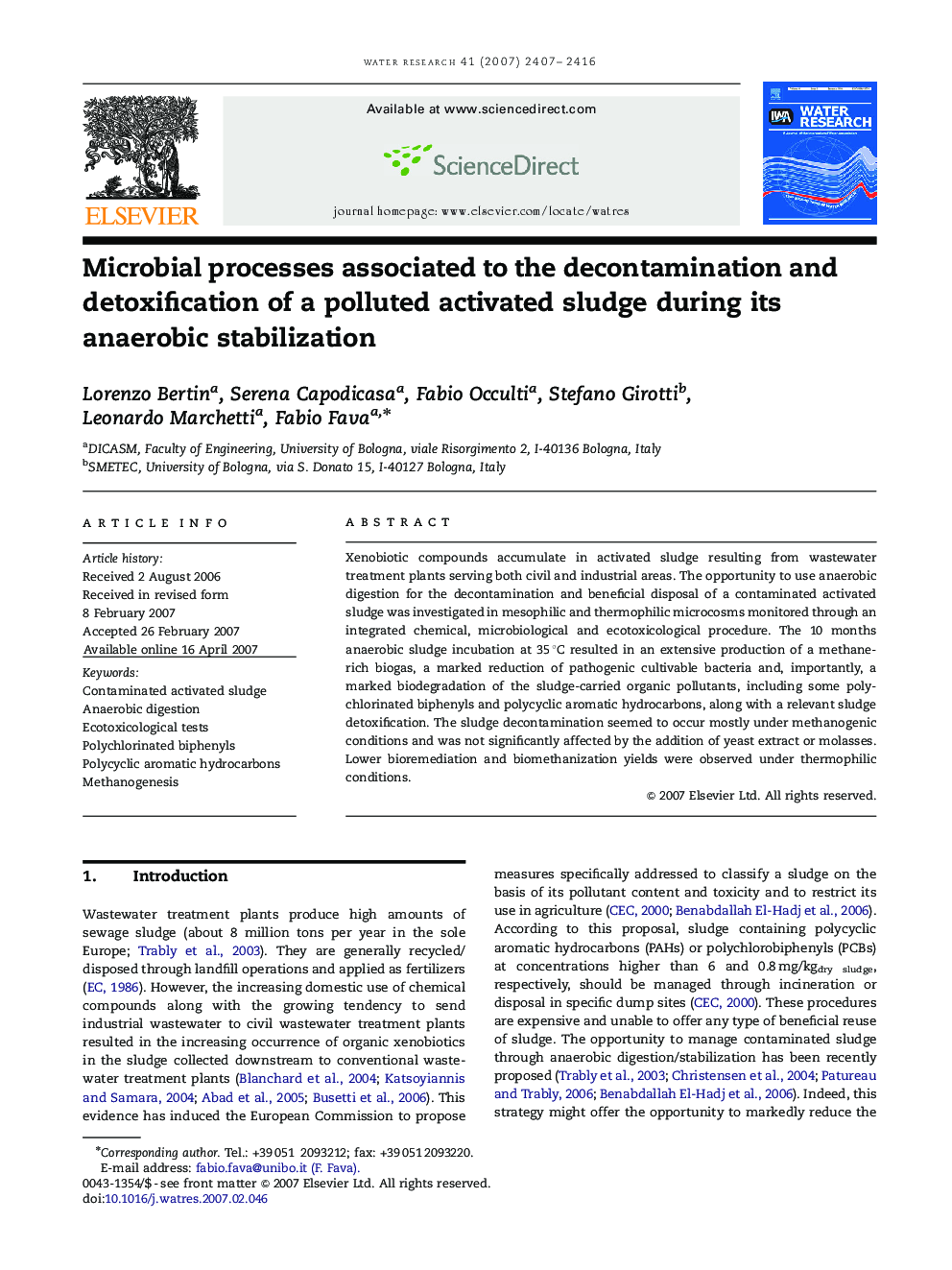| Article ID | Journal | Published Year | Pages | File Type |
|---|---|---|---|---|
| 4485443 | Water Research | 2007 | 10 Pages |
Xenobiotic compounds accumulate in activated sludge resulting from wastewater treatment plants serving both civil and industrial areas. The opportunity to use anaerobic digestion for the decontamination and beneficial disposal of a contaminated activated sludge was investigated in mesophilic and thermophilic microcosms monitored through an integrated chemical, microbiological and ecotoxicological procedure. The 10 months anaerobic sludge incubation at 35 °C resulted in an extensive production of a methane-rich biogas, a marked reduction of pathogenic cultivable bacteria and, importantly, a marked biodegradation of the sludge-carried organic pollutants, including some polychlorinated biphenyls and polycyclic aromatic hydrocarbons, along with a relevant sludge detoxification. The sludge decontamination seemed to occur mostly under methanogenic conditions and was not significantly affected by the addition of yeast extract or molasses. Lower bioremediation and biomethanization yields were observed under thermophilic conditions.
